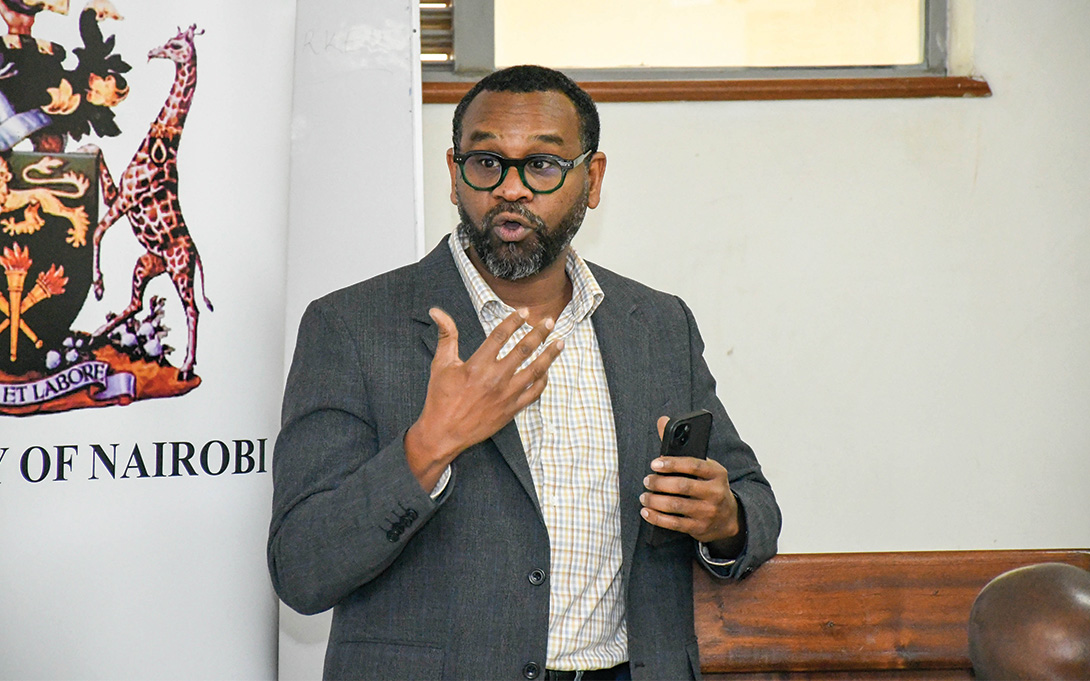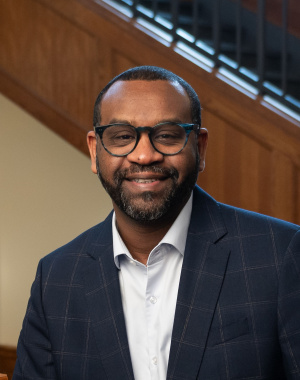
Workshop brings together stakeholders to shape equitable AI and data governance across the continent
Bringing together experts in Kenya, Yousif Hassan, assistant professor at the University of Michigan’s Gerald R. Ford School of Public Policy, co-organized and facilitated the “Empowering Africa Through Data Governance” workshop at the University of Nairobi this July.
Designed to address urgent issues in AI and data governance in the context of African development, the event convened 25 participants spanning civil society, government and policy makers, international development/NGO sectors, industry, think tanks, and academia. The workshop was a collaborative initiative between the University of Nairobi, the University of Michigan, the African Center for Technology Studies (ACTS), and Feminist AI Research (FAIR) Lab Africa.
“By bringing together diverse voices and multiple perspectives, we can develop better understanding about the challenges and opportunities that AI and data present and develop solutions that are more relevant to the needs of local communities,” said Hassan.

AI and data hold significant promise for social and economic development in sectors such as agriculture, health, and education. While many African countries are actively developing national AI strategies, much of the current policy guidance has been influenced by frameworks and actors from outside the continent, raising concerns about its applicability and effectiveness for African communities.
The one-day workshop aimed at bringing together local groups and organizations and examined three areas:
- AI and Data Policy in Kenya: Mapping out the current state, identifying legislative gaps, and discussing pathways toward policymaking attuned to emerging AI developments in the local context.
- Community Perspectives and Data Futures: Presenting case studies and contrasting local, community-based solutions with those developed by startups, the public sector, and larger industry actors.
- African Approaches to AI Ethics and Data Governance: Exploring how local values, ethical frameworks, and epistemologies might ground future policy and practical guidelines.
Hassan facilitated dialogue and synthesis, guiding participants toward better understanding of data governance that promotes equitable and inclusive practices and fair distribution of the benefits of technological benefits.
“The workshop highlighted the urgent need for creating space for collective reflections, critical exchange, and open dialogue as an imperative for regionally and locally grounded approaches to AI and data policy,” noted Hassan. “Participants learned more about current community-based innovations and initiatives, cross-sectoral issues, and identified key policy gaps. The day laid the groundwork for a more inclusive and effective approach to policymaking and to begin articulating governance approaches based on African values and lived-experiences.”
This workshop marks the beginning of a regional series, with future events planned for Ghana and South Africa.
